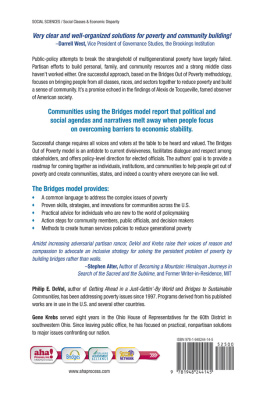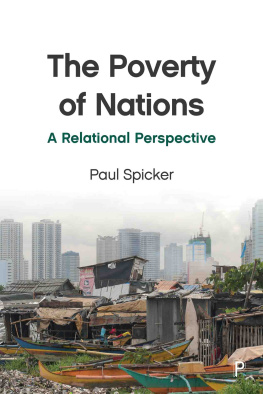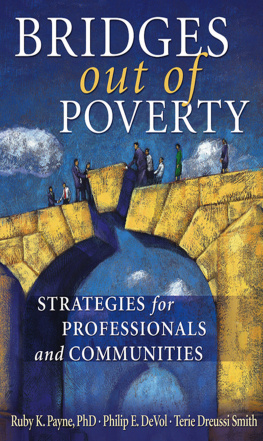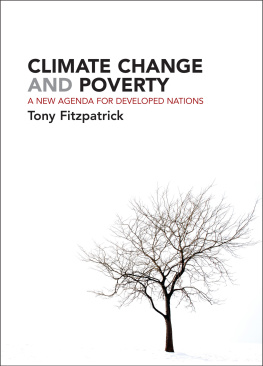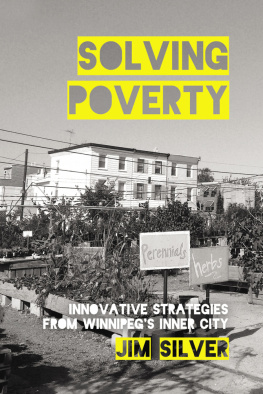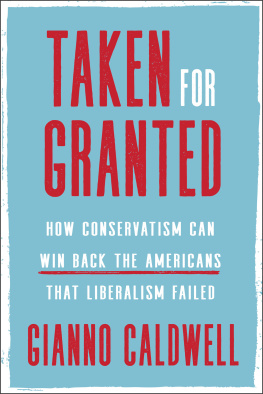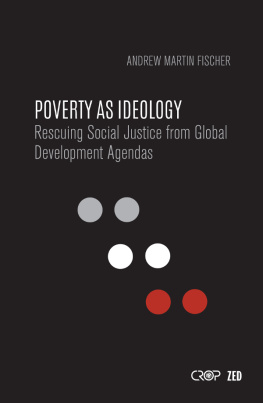Acknowledgments
In Gratitude
I never exactly made a book. It's rather like taking dictation. I was given things to say.
C. S. Lewis quoted in Hall, Seldom as They Seem
If I were askedto what the singular prosperity and growing strength of [the Americans] ought mainly to be attributed, I should reply: to the superiority of [the] women.
Alexis de Tocqueville, Democracy in America, 1835
We would like to thank Susan and Jan, without whose tireless support, patience, and re-re-re-reading of chapters, this book never would have happened.
Nor would it have happened if Ruby K. Payne had not written A Framework for Understanding Poverty. Payne brought on writers and trainers, many of whom wrote other books and introduced key innovations. There are countless wonderful consultants and people on the staff of the company Payne founded, aha! Process, who have built this work to national and international prominence. Many thanks to them. Terie Dreussi Smith and Jodi Pfarr also must be thanked specifically for helping to build the Bridges model described in this book from the ground up.
Further, we would like to recognize Count Alexis de Tocqueville, whose book written almost 200 years ago still gives pertinent insight into the functioning of our nation's grand experiment in democracy. Quotations from Democracy in America are scattered throughout our book, as you already have found above.
Democracy is based on the Frenchman's travels in the young United States of America in the 1830s, which was, like now, a time of rising anti-elite sentiment among the working classes. It is a book people love to quote, but seldom actually read. Still relevant to modern America and still insightful regarding how and why we make our decisions, Democracy in America has been very helpful to us. We encourage you to read it also.
Tocqueville, however, never said that as long as America is good, it will be great. That is why you won't see that quotation listed. We had to raise it here in order to dismiss the concern later as to why you'll never see the famous non-quotation in the book.
In addition to Tocqueville, the following individuals gave helpful insights and pointed the authors in many correct directions:
Ron Amstutz, Quinton Askew, Teresa Ballinger, Karen Barber, Bonnie Bazata, John Begala, Janine Boyd, John Brower, Toni Brown, Jennifer Brunner, Heidi Calendar, Jamie Calendar, Randy Cole, John Corlett, Greg Dennis, Tim Derickson, Chris Hytry Derringer, Christina Fulsom, Sheila Gilbert, Mary Hicks, Ned Hill, Chuck Holt, Ines Jindra, Michael Jindra, Susan Kempf, Melissa Knopp, Karla Krodel, Brie Lusheck, Bill Lybrook, Ted Lybrook, Stephen MacDonald, Steve Marks, Tom Martindale, Debora McDermed, Erin O'Donnell, Jim Ott, Dominic Paretti, Bruce Perry, Deborah Price, Carol Robb, Mike Saccocio, Andy Shifflette, Mike Simon, Elizabeth Wahler, and Laura Newberry Yokley.
Thanks also to the aha! Process publishing team who worked so well with us: Peggy Conrad, vice president of publications, and Dan Shenk and Jesse Conrad, editors.
We extend our heartfelt gratitude to alland we thank you, the reader, for embarking on this journey with us as together we seek to bridge the divides.
Philip DeVol and Gene Krebs
Appendix A
Glossary of Bridges Terminology
aha! Process, Inc.: the publishing and training company, which focuses on poverty and economic-class issues, founded and led by Ruby K. Payne
Bridges: The book Bridges Out of Poverty: Strategies for Professionals and Communities is generally used to train people who serve, work, and engage people in poverty and near poverty. The word Bridges often is used in a broad sense to refer to all things pertaining to the initiative. Rely on the context.
Bridges communities: Hundreds of settings in the United States and around the world where various organizations/institutions use Bridges concepts to improve their work and come together to learn from each other and advance Bridges initiatives
Bridges model: common content and methodology used by institutions and communities that adapt Bridges concepts; adherence to the underlying concepts and core constructs is balanced with encouragement to take ownership of the ideas and to innovate.
Bridges steering committee: generic term for a collaborative that communities develop to use Bridges concepts; leadership groups adopt names like Marion Matters, Impact Coalition, and Stillwater Cares.
Causes of poverty: Research on poverty causation falls into four categoriesindividual choice/behavior/circumstances, community conditions, exploitation, and political/economic structures.
Certified trainers: aha! Process trains individuals to work in institutions and/or communities regarding a number of sector-specific topics, including Bridges, Getting Ahead, K12 and postsecondary education, health and healthcare, reentry (from incarceration), the workplace, etc.
Client (employee, citizen returning from incarceration, and so on) Life Cycle: an examination of end users experience as they move through the process designed by the provider; this focuses on the experience of the person being served, not the design as it is written.
Collaborative: when various organizations/institutions and sectors in a community join forces with regard to the Bridges model
Common language: the core Bridges content found in most books and trainings provided by aha! Process; the content and constructs are shared by people from all classes, races, sectors, and political persuasions.
Core constructs: 10 foundational statements that sum up the commitment of individuals who apply Bridges in their lives, workplace, and community (see )
Getting Ahead: a facilitated group learning experience based on the workbook Getting Ahead in a Just-Gettin-By World: Building Your Resources for a Better Life, which is used by people in poverty to examine the impact that poverty has on them and their communities; this experience leads to the participants (called investigators) creating a future story supported by detailed plans. Getting Ahead also is a series of workbooks, including an edition for first-generation, low-income students; citizens returning from incarceration to the community; and entry-level employees.
Getting Ahead investigators: individuals who participate in the Getting Ahead learning experiences; they aren't seen as clients or students but as active participants in charge of their own learning.
Hidden rules of class: unspoken cues and habits of individuals and groups from poverty, middle class, and wealth
Law of attraction: an invitational stance and style regarding Bridges and Getting Ahead practices; it has been found that Bridges is most successful when people aren't forced to adopt or adhere to a canned program and information; this extends to staff and volunteers, community members at large, and Getting Ahead investigators. Given an opportunity to learn the information, people are allowed to apply the ideas they embrace. This doesn't mean that organizations shouldn't make institutional changes based on Bridges concepts that impact the daily lives of staff; it does mean that a cultural change of this sort will usually have some staff members who are outliers. They're to be treated with respect and be given opportunities to express their ideas and make any changes at their own pace.
Learning communities: People who know and use the common Bridges language enjoy sharing best practices at the water cooler in their own organization, at community meetings with people from other sectors, at statewide Bridges collaboratives, and with Bridges sites across the U.S. and internationally.

